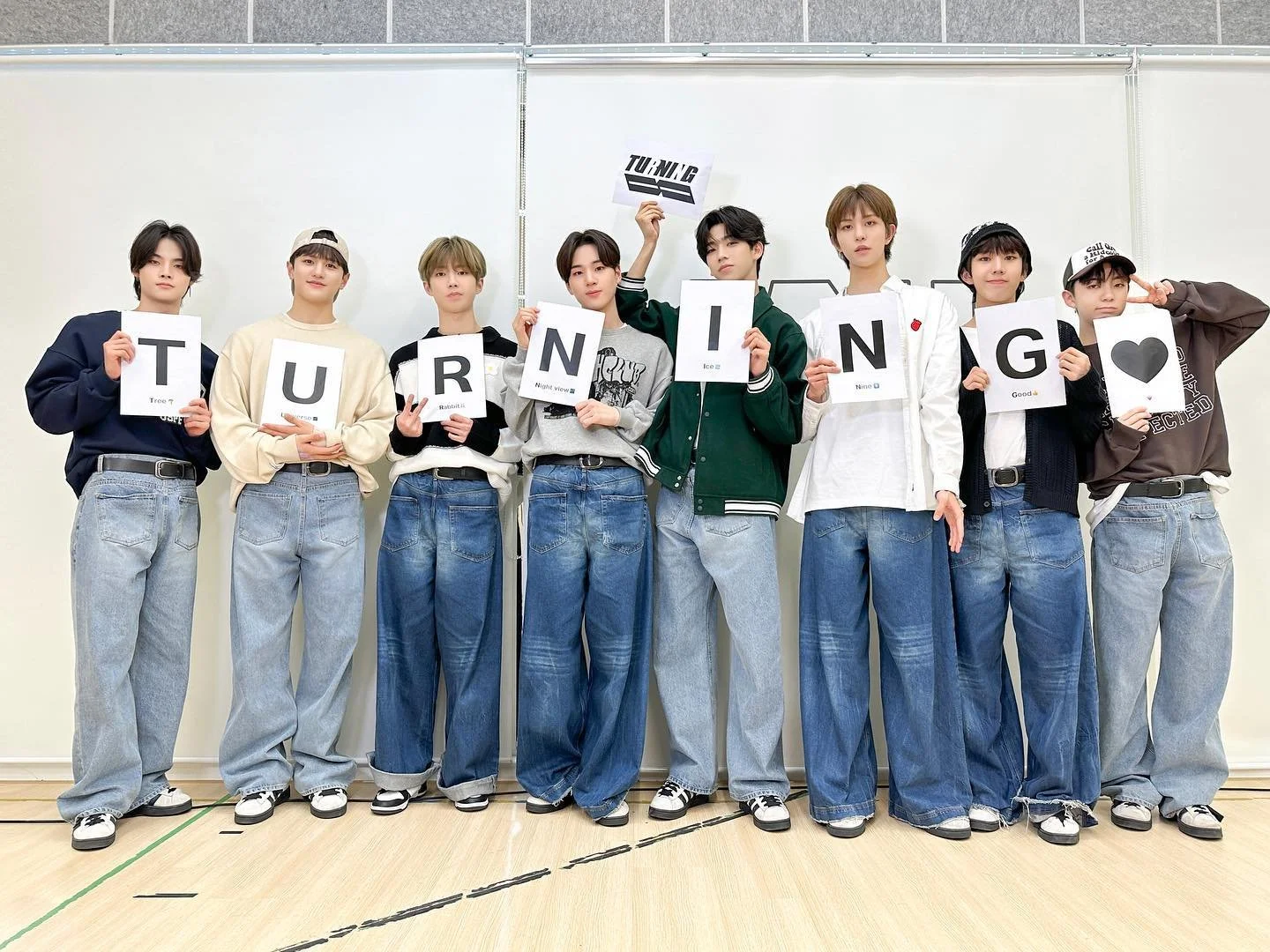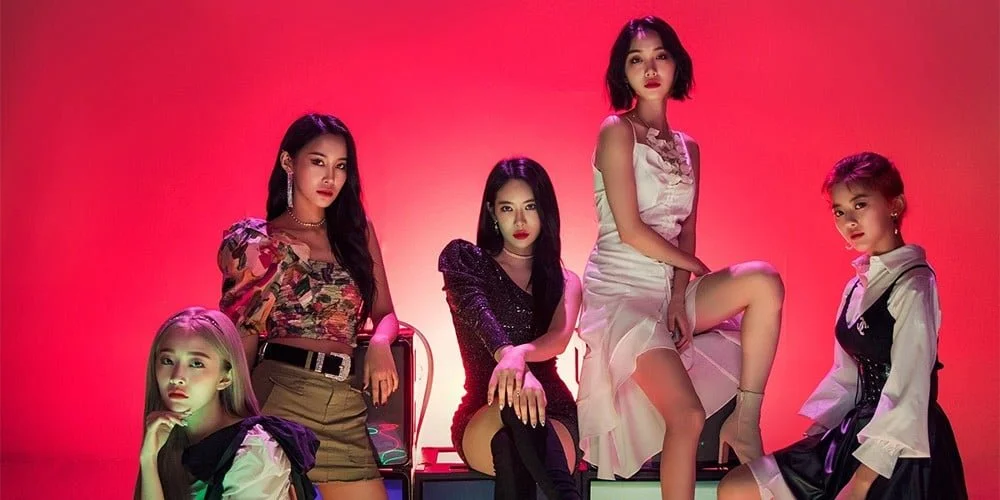What does ‘Nugu’ actually mean in K-pop?
Have you ever seen the term ‘nugu’ used online in K-pop spaces and wondered; ‘What even is a nugu group?’ We’re here to explain it to you!
A rising nugu group, 8TURN. Image: MNH Entertainment.
Read through this list of K-pop groups: cignature, SATURDAY, NOMAD, 8TURN, eite, Queenz Eye, Geenius, Younite. Any of the names ringing a bell?
If you found yourself wondering who in the world all or most of these groups are, this very short experiment has gone well—their ‘nugu’ status has been confirmed!
And if you found yourself recognizing the majority of them, it’s great that you are already enjoying music from the realm of ‘nugudom.’
Transforming the Korean term ‘nugu’ (누구), international fans of K-pop have carved out yet another niche to sort groups into. A group—or idol—can be considered nugu when they have a relatively tiny presence in terms of the number of fans they have or their general popularity level in the K-pop industry. The word ‘nugu’ translates to ‘who’ in English and reflects the ultimate question of “Who?” that pops up when these lesser-known groups are mentioned.
Arriving at ‘Nugudom’
In an industry as saturated as K-pop, it’s no surprise that some groups rise to the top while others slip down to the bottom. The term ‘nugudom’ refers to the space in the industry occupied by unknown groups. New groups debut at a pace that’s hard to keep up with, while well-established ones continue to make comeback after comeback—there’s only so much fans can dedicate their time and energy to.
K-pop’s reliance on promotion and visuals makes it harder to achieve even average popularity. Having less money available to pay for lengthy promotion periods, working with messier music production, using plain, repetitive sets for music videos—these are all obstacles that young groups from smaller companies in particular can potentially face.
This isn’t to say that nugus don’t ever get their moment in the spotlight, it’s just that such moments are usually temporary. The girl group Weeekly went viral with their third title track, “After School,” in 2021. It took the internet by storm, with dance covers popping up all over social media. This big buzz unfortunately trickled off with the release of their following fourth mini album Play Game: Holiday as its title track “Holiday Party” did not appear to be making waves at a level anywhere near the preceding “After School.”
Nugu girl group Weeekly for their “LIGHTS ON” M/V. Image: IST Entertainment.
Social media presence can also be an easy source of attention. The popularity of the short video series where Prince of GHOST9 cooks various dishes in a practice room until he’s caught by his manager is only one example of how the personality aspect of a group can hook people in just as well as music.
The Charm of Nugu Groups
Like the rest of the industry, nugu groups are extremely talented in individual areas and often just as good as some groups from the ‘Big Four’ companies JYP, YG, SM, and HYBE.
Take Purple Kiss, for example: all members are strong in terms of live performance, but each still possesses their own unique qualities and skills. Swan stands out with her distinctive vocal tone, Chaein stands out as an all-rounder, Dosie and Ireh stand out as brilliant dancers, the list goes on.
In addition, nugus aren’t slacking on the discography side of things either, many of them having a number of catchy title tracks and B-sides to match.
Purple Kiss debut image. Image: RBW.
There are plenty of nugu groups with members that represent diverse identities, inviting a wider group of K-pop fans to tune in! Big Ocean debuted in April of this year, with all three of its members being Deaf or hard of hearing, using sign language in their choreographies and social media content. QI.X is an openly queer group aiming to connect with audiences, LGBTQ-identifying or not.
What the enthusiastic support of these less-popular groups boils down to is the fact that they are idols in pursuit of a successful career like any of their well-known colleagues. Fans are rooting for their group’s ability to continue to be on stage and make great music.
Being a Nugu Fan: You Win Some, You Lose Some
There are a couple of perks to being a fan of nugu groups.
Have you ever wanted to gatekeep a musical artist? Well, it becomes easy when there aren’t many people that know who they are in the first place! If they happen to tour in a city near you, tickets are likely to be much cheaper than those of groups like ATEEZ or TWICE. Small fandoms can be fun as well, equipped with their own inside jokes and tighter circles of shared content.
However, being a fan can be costly at the same time. The fast-paced nature of K-pop can lead to consequences for those groups that fail to come out on top or at least maintain enough popularity to generate profits.
An underdog story may be appealing, but the consistent overshadowing of nugu groups is tough to watch. You know these idols are talented and everyone else should know too—it’s just that the competition in the loaded industry makes it hard to break out of nugudom.
Nugu groups are also more likely to disband and within a short period of time, mostly because of a lack of funding or lack of schedules or activities on behalf of their companies. The highly anticipated group HINAPIA, made up of previous members of the popular group Pristin, disbanded nine months after debut due to a lack of financial support.
HINAPIA, disbanded in 2020. Image: OSR Entertainment.
Being a nugu fan is truly a test of dedication!
Turning the Nugu Tides
Times for nugu groups are slowly changing. History has shown that a range of moments can take a group from unknown to a household name.
EXID shot up in status in 2014 after member Hani’s fancam went viral and they ended up cementing themselves as iconic with songs like “Up & Down” and “Hot Pink.” More recently, this happened with Billlie’s Tsuki as the internet raved about her facial expressions while performing.
The rise of promotional accounts on X/Twitter such as nugu archive (@nugupromo), nugu promoter (@nugupromoter), and NUGU BOYS! (@nugubgs_) have made it easier for nugu groups and their music to spread online.
Survival shows like Peak Time, Road to Kingdom, and Queendom Puzzle featured lesser known groups in the hopes of giving them a boost. Groups like DKB, BAE173, WOOAH, and Rocket Punch benefitted but remain under the radar while groups like The Boyz and ONEUS have been propelled into mainstream territory.
As more and more people tune into the K-pop genre, there’s hope for these unheard-of groups to reach a new listener and gain a fan. Give a nugu a try! They just might surprise you.
Edited by Isabel Miller.




